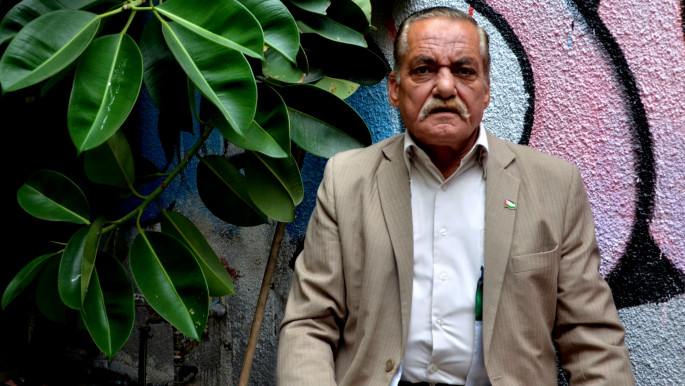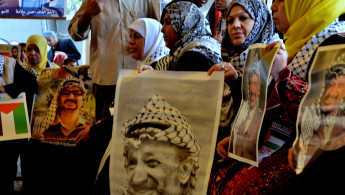Commemorations for Arafat deepen tensions in Gaza
In a pertinent reminder of what some might suggest is a direct result of his absence, commemorations to mark the tenth anniversary of the death of Yasser Arafat are threatening to deepen factional divisions among Palestinians in Gaza.
On Sunday, the Hamas-run interior ministry in Gaza announced it would not provide protection or any kind of security arrangements for public commemorations for the iconic leader, who was also Fatah supremo, citing a lack of funds.
Fatah responded by cancelling the main Gaza commemoration event and criticized Hamas for not abiding by their public order responsibilities.
| Abu Ammar deserves all our respect. He was the leader of the Palestinian people… all the Palestinian people – Faith Tobali |
But some insist that they will commemorate the man who led Palestinians for decades and became the iconic face of Palestinian national aspirations.
"Arafat was not a leader or a president,” an emotional Abu Husni al-Sarafeety, an elderly man from the Sheikh Radwan district of Gaza City, told al-Araby al-Jadeed on Monday.
“Arafat was like a father for all Palestinians. When my son was killed by the Israeli army, back in early 2000, Arafat came to my home to pay condolences himself."
The heightened security concerns come after a series of explosions at the homes of Fatah leaders in Gaza last week. No one has claimed responsibility for the blasts, which caused only material damage.
But Fatah has blamed Hamas, even though the Islamist group’s Sami Abu Zuhri had quickly condemned the explosions, and in a statement Sunday accused Gaza’s ruling faction of peddling “cheap lies” and not acting in the interests of the nation.
Hamas, however, has linked its decision not to provide security for Arafat commemorations to the non-payment of its security staff. Many public sector workers in Gaza have gone unpaid for much of the time since Hamas won parliamentary elections in 2006 in part as a result of international prohibition, and in part – after Hamas bested Fatah in factional fighting in 2007 – because the Fatah-dominated Palestinian Authority in the West Bank diverted funds only to civil servants who refused to work for Hamas in the Strip.
The payment issue was one of the thorniest in unity negotiations earlier this year that eventually led to the formation of a unity government. But payments have yet to materialize and, due to the bombings, PA prime minister Rami Hamdallah cancelled a visit to Gaza on Sunday that was partly going to address this issue.
Palestinians might have hoped that the April unity deal would have meant the ten-year commemorations for Arafat would take place under better circumstances. And critics have rounded on Hamas for missing an opportunity to improve relations with its Fatah rivals.
 |
|
| Sarafeety: 'Arafat was a father for all' [Shadi Alqarra] |
"It is an unwise decision,” said Talal Okal, a leading political analyst in Gaza, that could “fuel tension” in the street. And the link with the salary issue only “further complicates the situation”.
“This will likely hamper conciliation efforts and make it difficult for both parties to move forward,” Okal said. “More tension in Gaza could also complicate reconstruction efforts.”
Another Gaza-based analyst, Ahmad al-Haj, criticised both factions for “misleading the people”.
“In appearance they look at odds, but in other perspectives they agree. They are both misleading the people when they should be frank and open to provide some sort of hope of a better future,” al-Haj told al-Araby al-Jadeed on Monday.
Both analysts agreed that the bombings and subsequent tension means conciliation efforts are being put on hold.
The attacks on the houses of Fatah leaders Faisal Abu Shahla, Fayez Abu Aita and Abdelrahman Hammad have outraged people.
"This is a barbaric act and those who carried it out are merely mercenary and aim to disrupt our lives in general, and the commemoration in particular, said Merfat al-Bitar, 33. Bitar was taking part in a regular demonstration for the rights of Palestinian prisoners in Israeli jails and said the bombings would not deter her from commemorating Arafat.
Fathi Tobail, a man of his early sixties who was wearing his Keffiyeh in the manner of Arafat, said the commemoration should be an opportunity for unity.
"Abu Ammar deserves all our respect and appreciation. He turned the Palestinian cause from a refugee problem into a political question that has gained momentum and recognition worldwide. He was the leader of the Palestinian people… all the Palestinian people.”



